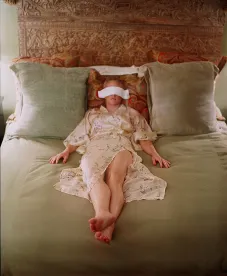The Supreme Court of the United States essentially affirmed the Federal Circuit in ruling (8-1) that induced infringement under 35 U.S.C. §271(b) requires knowledge that the induced acts constitute patent infringement, but that one cannot escape liability through “willful blindness” that a copied product is patented. However, the Supreme Court did reject the Federal Circuit’s “deliberate indifference” standard as a substitute for knowledge. Global-Tech Appliances Inc. v. SEB S.A., Case No. 10-6 (Supr. Ct. May 31, 2011) (Justice Alito) (Justice Kennedy, dissenting).
In upholding the Federal Circuit but rejecting the “deliberate indifference” standard, the Supreme Court held that the evidence presented at trial was sufficient to find liability for induced infringement under a theory of “willful blindness,” even though there was no evidence that the defendant had actual knowledge of the asserted patent prior to the filing of the lawsuit. In so holding, the Supreme Court noted that the inducement statute, §271(b), and the contributory infringement statute, §271(c), both stem from the same contributory infringement precedent and that, based on that precedent, both require knowledge that the acts complained of constitute patent infringement, which includes knowledge of the patent. As explained by the Supreme Court, “[t]he two provisions have a common origin in the pre-1952 understanding of contributory infringement, and the language of the two provisions creates the same difficult interpretive choice. It could thus be strange to hold that knowledge of the relevant patent is needed under §271(c) but not under §271(b).”
Willful Blindness
The Supreme Court then turned to whether the knowledge requirement could be satisfied by something less than actual knowledge and, if so, what the level of that knowledge should be. Looking at criminal case law, the Supreme Court focused on cases in which other courts have held statutes requiring proof that a defendant acted willfully or knowingly to be satisfied—even though the defendant lacked actual knowledge—because the defendant “deliberately shield[ed] themselves from clear evidence of critical facts that are strongly suggested by the circumstances.” Adopting a similar standard, the Supreme Court concluded that “[g]iven the long history of willful blindness and its wide acceptance in the Federal Judiciary, we can see no reason why the doctrine should not apply in civil lawsuits for induced patent infringement under 35 U.S.C. §271(b).”
Having established willful blindness as the threshold for the knowledge requirement to satisfy induced infringement liability, the Supreme Court set forth two “basic components for willful blindness: (1) the defendant must subjectively believe that there is a high probability that a fact exists and (2) the defendant must take deliberate actions to avoid learning of that fact.”
The Supreme Court then distinguished this willful blindness from the even lower threshold of “deliberate indifference,” i.e., the test applied by the Federal Circuit, concluding that deliberate indifference “permits a finding of knowledge when there is merely a ‘known risk’ that the induced acts are infringing,” and it does “not require active efforts by an inducer to avoid knowing about the infringing nature of the activities.” In comparison to the willful blindness test which stems from criminal law, the deliberate indifference test is more akin to simple negligence.
Applying the willful blindness standard to the facts of the case, the Supreme Court found that the evidence in the present case, taken cumulatively (including evidence that defendant reverse-engineered a foreign, unmarked product of its competitor, copied it and sold it as its own; that defendant commissioned a “right-to-use” study, but did not inform the commissioned lawyer that the product was copied; that defendant’s president was well-versed in U.S. patent law and was a named inventor on 29 patents; and testimony that supported an inference that the defendant did not inform the commissioned attorney the product was copied in order to manufacture a claim of plausible deniability) could support a jury finding “that [defendant] subjectively believed there was a high probability that [plaintiff’s product] was patented, that [defendant] took deliberate steps to avoid knowing that fact, and that it therefore willfully blinded itself to the infringing nature of [its customer’s] sales.”
Dissent
In dissent, Justice Kennedy wrote that even willful blindness is not enough to satisfy the knowledge requirement of §271(b). “Willful blindness is not knowledge and judges should not broaden a legislative prescription by analogy.” Justice Kennedy warned that this case could have serious repercussions in terms of criminal cases that involve a knowledge requirement.




 />i
/>i
